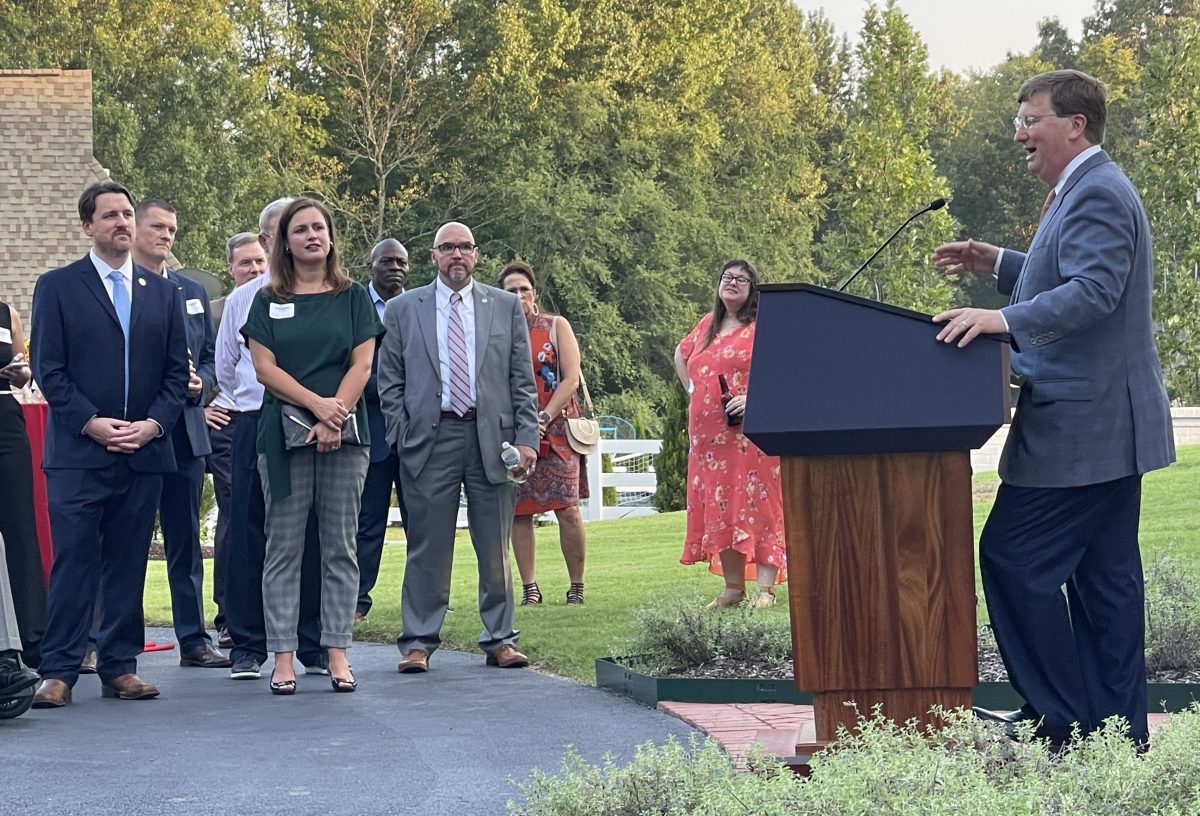After a year of quarantines, shutdowns, and cabin fever, a little road trip can really cure a vacation itch — without the time off from work, hotel fees, plane tickets, etc. that often accompany an actual vacation. With several options within a few short hours of the city limits, it’s easy to hop in the car, see the sights, unplug, and have some fun — and even be back home by sundown.
Calico Rock, Arkansas
My status as an angler is amateur at best, but when I was younger, my family used to make pilgrimages to Calico Rock in Izard County, Arkansas, to fish for trout in the White River. I’ve done well enough with lures and live bait, from the boat and from the shore, but I’ve never made the leap into the die-hard world of flyfishing. Whether I caught much or not, though, it was some of the most fun I can remember having.
As I recall it, as the water swirls around your rubber waders or the bow of your boat, it’s cold — piercingly so. The White River, fed from the depths of Beaver Lake, is famously frigid. It’s the kind of shocking chill that will jolt you awake, driving thoughts of the city and the job from your mind. All the better to tune into the quiet rhythms of the Natural State.
 Jesse Davis
Jesse Davis
Jenkins Fishing Service on the White River
I made the three-hour trip to Calico Rock myself just a few weeks ago. Fishing season had not yet started back up, but I enjoyed myself hiking along the banks of the meandering Calico Creek. I snapped a few photos, thought about fishing trips of old and those still to come, and enjoyed the clean, crisp, cool air.
Of course, the adventurous Mid-Southerner venturing into the Arkansas wilds need not stop at Calico Rock. The Little Red River and the Black River are known to be excellent fishing spots as well; and Lake Ouachita, a jewel of a lake, is hard to beat for camping, hiking, and canoeing. Or, for those less sporty types, and I’m speaking from experience now, just kick back by the campfire with a good book and a bottle of bourbon and enjoy the scenery. — Jesse Davis
Taylor, Mississippi
The rustic village of Taylor is, as Faulkner called it, “a postage stamp of native soil.” But it’s an interesting stamp, and reputedly the only real Mississippi town name that Faulkner allowed into his novels. It’s also a nice day-trip destination — about 90 minutes from Memphis — offering a melange of vintage small-town structures, local art galleries, and memorable food, both plain and fancy.
The story goes that in the 1970s, when real estate prices started rising in Oxford, a number of painters, potters, musicians, and other refugees moved to Taylor, giving it a cachet of bohemia that still remains. The weathered and largely unrestored main thoroughfare also remains, with a few plank buildings and a rustic gas pump and board sidewalk. You can visit local galleries and shops, drop into Carter’s Store for “dry goods,” and, if you’re willing to hang around on the front porch until a table opens (a pleasant experience, usually), you can eat some of the famous catfish at Taylor Grocery & Restaurant. You can also take it with you if indoor dining is still not an option you’re interested in.
 Google Earth
Google Earth
The Plein Air development in Taylor, Mississippi
 Google Earth
Google Earth
Carter’s Store
 grittaylor.com
grittaylor.com
Grit
If catfish isn’t your thing, you’re in luck. You can sample some fine Southern fusion cuisine — and maybe an artisanal cocktail or two — at Grit, which is located in the new Plein Air development, not far from Taylor’s main drag. (Which is a very small main drag, for the record.) The homes in Plein Air are classic Southern design, with front porches and lawns, sort of like Seaside in Florida or Memphis’ Harbor Town. It’s a nice neighborhood, and “The Mill” is a popular site for weddings. There are a couple of shopping opportunities in Plein Air, as well. And the drive back can be fun, if you explore the backroads. Which is what Faulkner would recommend. — Bruce VanWyngarden
Reelfoot Lake — Tiptonville, Tennessee
I’m on my vintage Indian Scout with the sun on my back and the wind in my hair. Helmet be damned. The daydream comes to a sudden halt with four words, “Are we there yet?”
I came back to reality driving a 2014 minivan with two “I’m bored” preteens and a “Where are we going again?” septuagenarian.
Earlier at home, my 7- and 9-year-old nieces uttered the words “I’m bored” one too many times. Aunt Juju sprang into action loading everyone in the car for another infamous “crazy aunt” mystery trip. On these trips, I don’t say where we are going; It’s a surprise. Thirty minutes in, someone always asks, “How long until we get there?” I look at my phone and say, “In about when-we-arrive hours.”
 Julie Ray
Julie Ray
Nature Center, like the recently opened Youth Ninja Course, are open to the public.
The 7-year-old was wearing a tie-dye sweatshirt with Christmas tree pajama pants. Reelfoot Lake in Tiptonville, Tennessee, is about 100 miles through some quaint small towns and, luckily, has a relaxed dress code. Bald eagles, a gorgeous lake, and fried chicken at Boyette’s would be the best bet to fill the void on a cold, overcast day.
Google Maps suggested Highway 14. Not only is this route an extra hour, it’s boring. Best take Highway 51; it’s more entertaining, and the route is only two hours. We missed the bald eagle tour, the park was closing soon, and the kids got hungry hours ago, necessitating a stop at Sonic. No one was hungry for Boyette’s, but we did see eagles and find a Youth Ninja Course — a very scaled-down version of American Ninja Warrior‘s obstacle course. That was a hit.
I’ve been to Reelfoot Lake and Boyette’s before via Highway 51. You’ll just have to take my word that it’s a worthy day trip. Best enjoyed on a vintage Indian Scout. — Julie Ray
Holly Springs, Mississippi
A day trip for me means eating. A trip to Holly Springs, Mississippi, only about an hour from Memphis, ensures lots of good eating. And more.
A must is Phillips Grocery, known for its hamburgers made with secret ingredients. I like to eat on the porch and drink a Nehi grape or orange with my burgers at the restaurant, housed in a circa 1882 saloon. They also have a great chicken sandwich.
 Alice McLallen Kerley
Alice McLallen Kerley
Phillips Grocery
Marshall Steakhouse, a massive restaurant owned by Randall Swaney, is a shrine to beef. In summer, catch a show on the outdoor stage. You also can eat outside at one of the many tree-shaded picnic tables.
For fabulous catfish, barbecue, and other cuisine, visit Clancy’s Cafe in Red Banks, 10 minutes from Holly Springs going toward Memphis. Desserts include cakes made by owner Tyler Clancy’s grandmother.
Places to go between eating include the Marshall County Historical Museum, which area Baby Boomers might compare to the old Pink Palace Museum, which was full of everything. This museum encompasses several floors and includes vintage clothing, toys, dolls, quilts, and old farm tools.
The nearby Kate Freeman Clark Art Gallery exclusively features art by the late Holly Springs artist.
Check out the Ida B. Wells-Barnett Museum and Cultural Center of African and African-American History, which highlights worldwide contributions in history, art, and culture.
If you’re an Elvis fan, drive by (it’s not open to the public) Graceland Too, which the late Paul MacLeod once devoted as a shrine to the King.
Venture less than an hour away to Tupelo to see more Elvis. This is where his childhood home is located. And grab something to eat at one of Elvis’ former hangouts, Johnnie’s Drive-In.
Finally, on your way to and/or from Tupelo to Holly Springs, get an extraordinary homemade apple or peach pie at Flick’s Truck Stop in Potts Camp.— Michael Donahue
The Clinton Presidential Museum and Library — Little Rock, Arkansas
Though it has, like other national installations featuring historical government archives, undergone temporary closure, the Clinton Presidential Library and Museum in Little Rock should be on anybody’s future list, and should be generally available soon, given the advent of multiple vaccines and, as of early 2021, intensified anti-COVID policies at all levels of government.
Located just off the first interstate exit at Little Rock, as one heads west on I-40, the library stands in cantilevered splendor on a 30-acre park. Inside, it contains archival collections and research facilities, as well as mementoes galore of the 42nd president’s time in office: photographs and videos of key historical moments and artifacts of Clinton’s travels as chief executive, along with replicas of documents ranging from important treaties to personal correspondence with the likes of Elton John. And yes, a saxophone.
 Jackson Baker
Jackson Baker
at Resolute desk
Visitors have the opportunity to go interactive, sitting at exact replicas of the cabinet table in Clinton’s White House conference room and at the famed Resolute desk in an Oval Office space that models Clinton’s taste and, we learn, has been largely replicated in Joe Biden’s choice of decor. And not just sit; both of these historical spaces are outfitted with easily operated audio-visual reminders of the events, both momentous and personal, that occurred there and can be re-experienced by the visitor.
A lot of history here at one’s beck and call, and close by! — Jackson Baker
Delta Bound
Memphis is lucky to have, right on its doorstep, nothing less than the crucible of some of America’s greatest music. That would be the Mississippi Delta, of course, and for anyone hankering to get out of town, it can be the perfect escape. Thankfully, barreling down Highway 61 (in a convertible, anyone?) is COVID-safe.
Along the way, watch for the signs of the Mississippi Blues Trail (msbluestrail.org), which alert travelers to significant locations in the music’s history. One of the first you’ll see stands in the cemetery where Memphis Minnie is buried, just west of Walls, where she grew up. Others are found near Tunica, Clarksdale has over a half dozen, and that’s just the beginning.
Stopping off to soak in the Delta landscape, while learning blues history, is a glorious escape on a sunny day. But the blues museums along the way are also an option. In one recent trip to see several Delta museums, I had them all to myself. The Delta Blues Museum in Clarksdale, the Grammy Museum in Cleveland, and the B.B. King Museum in Indianola, among others, can provide hours of education and entertainment.
 Alex Greene
Alex Greene
B.B. King Museum in Indianola
 Alex Greene
Alex Greene
Robert Johnson’s grave in Greenwood
 Alex Greene
Alex Greene
Delta Blues Museum
 Alex Greene
Alex Greene
Hubert Sumlin marker in Greenwood
But there’s more to the Delta than just music. See the current Delta Magazine for a comprehensive guide to public art in the region, from murals to sculpture to architecture. The area is bursting with creativity, as spaces like the Mississippi Arts and Entertainment Experience in Meridian, the Mathews-Sanders Sculpture Garden in Cleveland, or the H.C. Porter Gallery in Vicksburg make abundantly clear.
Meanwhile, those who love non-musical history have plenty to discover, starting with the multi-state Civil Rights Trail (civilrightstrail.com), which has many markers and sites through the Delta. Greenwood sports the Museum of the Mississippi Delta, covering prehistory, Native American life, art, agriculture, and the Civil War.
But beyond such curated experiences, the simple art of walking and exploring can thrive in the Delta, whether it’s taking in the historical downtowns of Clarksdale, Greenwood, or other towns, or — my favorite — exploring cemeteries. To sit beside Robert Johnson’s final resting place outside of Greenwood, as dusk sets in, makes for a day trip that reverberates deep in the soul. — Alex Greene
Wilson, Arkansas
With the redevelopment and building boom going on in Downtown Memphis and other parts of town, you might be forgiven for not looking too far outside the Bluff City Bubble. But if you avert your gaze slightly, you’ll catch a glimpse of a small-city renaissance happening just 45 minutes up I-55.
The town of Wilson, Arkansas, (population hovering just under 1,000) has been reborn over the last decade since the Wilson family sold its land to The Lawrence Group in 2010. The group, which has experience running wineries and vineyards, is revitalizing the former logging and sawmill town into a Delta tourist hotspot.
 Courtesy City of Wilson, AR
Courtesy City of Wilson, AR
The Grange at Wilson Gardens
The city’s 21st-century approach is built around the Wilson Wine Experience, which includes frequent six-course thematic dinner events curated by Norbert Mede and Chef Roberto Barth. Set at different historic locations around Wilson, Mede’s keen taste for good vintages meshes superbly with Barth’s unique approach to Delta cooking.
Those with a bit more thirst can focus on one of Wilson’s weekly wine tastings, and easily spend the better part of a day catching some music at The Grange at Wilson Gardens, or diving into the free Hampson Archeological Museum, which contains artifacts of the pre-Colombian people who inhabited the Delta from 1400 to 1650.
Even if wine (and it’s some good wine) isn’t your thing, there’s something for everyone in Wilson, and there’s even more on the horizon. Month by month, the city adds more activities to its roster, including a crawfish festival slated for the end of April. So keep an eye on the calendar; if you need a quick escape, it’s always a good time to visit Wilson. — Samuel X. Cicci










 Jesse Davis
Jesse Davis  Google Earth
Google Earth  Google Earth
Google Earth  grittaylor.com
grittaylor.com  Julie Ray
Julie Ray  Alice McLallen Kerley
Alice McLallen Kerley  Jackson Baker
Jackson Baker  Alex Greene
Alex Greene  Alex Greene
Alex Greene  Alex Greene
Alex Greene  Alex Greene
Alex Greene  Courtesy City of Wilson, AR
Courtesy City of Wilson, AR 